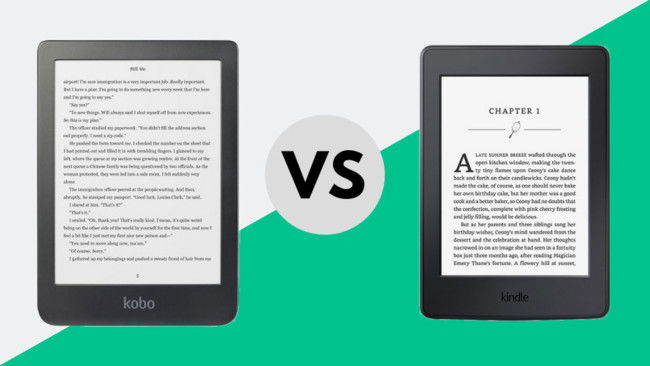
Operating systems for reading e-books: Kindle, Kobo and others
As digital reading becomes more popular, choosing the right operating system for your e-readers can make a big difference in your reading experience. The two most well-known operating systems for e-readers are Amazon's Kindle and Rakuten Kobo, but there are others worth exploring. In this guide, we'll compare these operating systems to help you make an informed decision.
Kindle: Amazon Ecosystem
Amazon's Kindle is a dominant force in the e-book market, known for its seamless integration of hardware and software. Here are some key features of the Kindle operating system:
1. Kindle devices
Kindle OS is designed exclusively for Amazon's line of e-readers, such as the Kindle Paperwhite and Kindle Oasis. This ensures optimal compatibility and performance between hardware and software.
2. Extensive library of e-books
Kindle boasts an extensive eBook library, including a wide selection of bestsellers, classics, and self-published titles. You can purchase e-books from the Kindle Store or borrow e-books from Amazon's Kindle Unlimited subscription service.
3. Whisper Synchronization
One standout feature is Whispersync, which syncs your reading progress, bookmarks, and notes across all your Kindle devices and apps. This means you can easily switch from reading on your Kindle e-reader to the Kindle app on your smartphone without losing space.
4. User-friendly interface
Kindle offers a user-friendly interface with customizable font sizes, background colors, and page layouts. It also supports in-text annotations and dictionary searches to enhance the reading and learning experience.
Kobo: Global Challenger
Stop generation
1. Kobo eBooks
Kobo OS is primarily used in Kobo e-readers, including models such as the Kobo Clara HD and Kobo Forma. Kobo devices are known for their excellent build quality and support for a variety of e-reader formats.
2. Open e-book ecosystem
Kobo takes a more open approach to e-book formats. It supports a wide range of formats, including EPUB, PDF and even some comic book formats, making it a versatile choice for e-book lovers.
3. Integration with Pocket
Kobo integrates with the Pocket app, allowing you to save articles from the web to your e-reader. This is a valuable feature for readers who want to catch up on articles or long reading sessions.
4. Reading settings
Like the Kindle, Kobo offers a customizable reading experience with custom fonts, layouts, and the ability to add notes and highlights. It also features ComfortLight for evening reading.
Other operating systems
Although Kindle and Kobo dominate the market, there are other operating systems worth mentioning:
1. Apple Books (iOS)
For iOS users, Apple Books is the default e-book reader with a user-friendly interface, access to the Apple Bookstore, and features like family sharing.
2. Google Play Books (Android)
Android users can take advantage of Google Play Books, which offers a diverse catalog of e-books, cloud syncing, and compatibility with a variety of Android devices.
3. Adobe Digital Editions
This operating system features support for Adobe DRM-protected e-books and is often used by libraries and academic institutions.
Choosing the right operating system
When choosing an operating system for your e-readers, consider the following factors:
-
Device compatibility: Make sure your operating system is compatible with your preferred e-reader or mobile device.
-
E-book format: Check whether your operating system supports the e-book formats you are using, especially if you have a collection of e-books in certain formats.
-
E-book store: Review the availability of e-books in the respective store and any subscription services offered.
-
Reading Features: Enjoy the reading features on offer, such as customization options, note-taking, and syncing capabilities.
Ultimately, the choice between Kindle, Kobo, or another operating system depends on your specific needs and preferences. Each operating system has its own unique advantages, and choosing the right one for you depends on your reading habits and the reading devices you use
No matter which operating system you choose, the world of e-books offers a universe of stories waiting to be explored at your fingertips.






